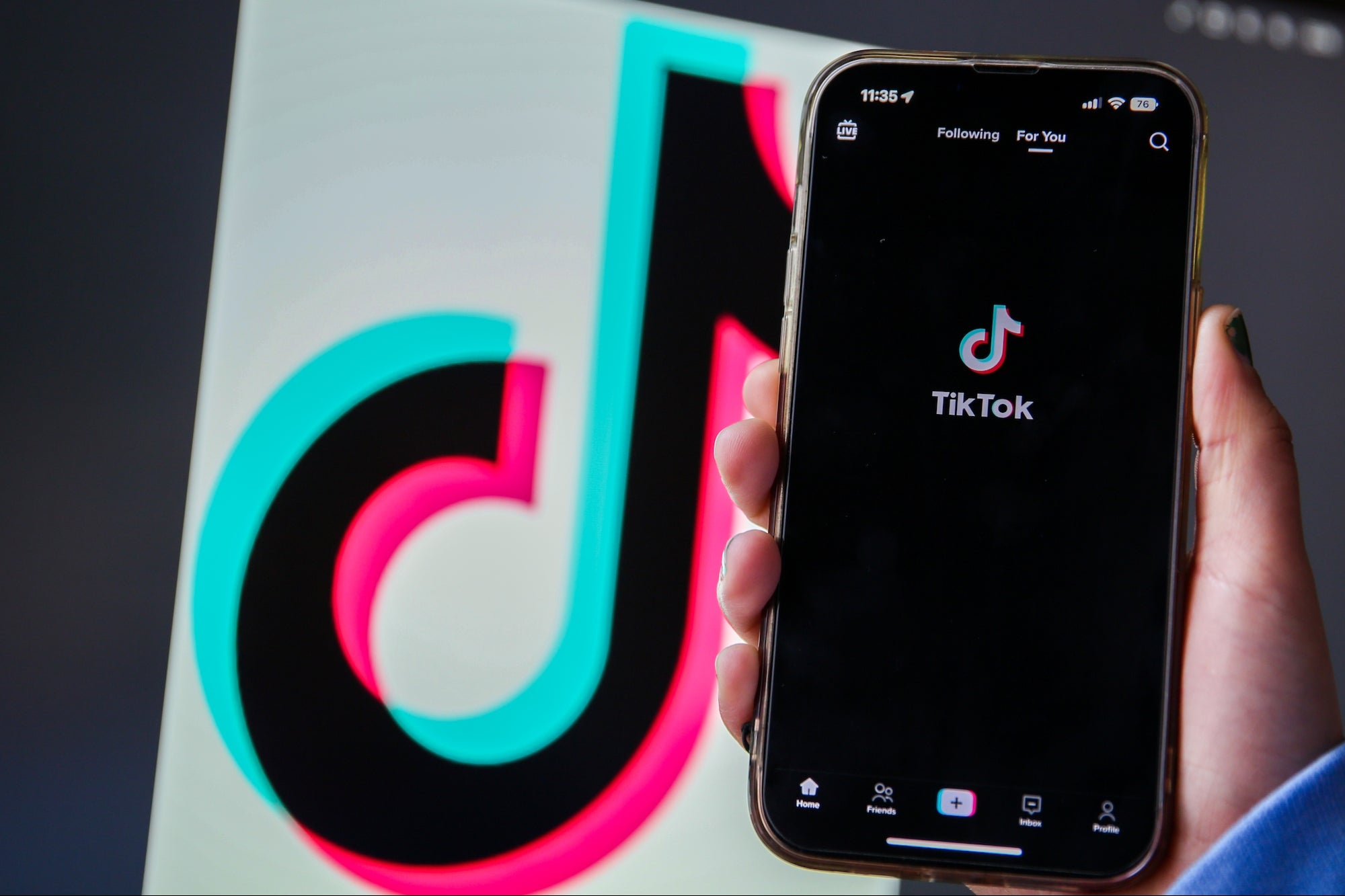Why Is the U.S. Threatening to Ban TikTok? The Government Wants Chinese Owners to Sell Stakes The U.S. government asked the company to divest from its Chinese ownership, including its parent company, Beijing-based ByteDance, or potentially be banned from operating in the country.
Opinions expressed by Entrepreneur contributors are their own.

TikTok could be facing a ticking clock.
On Wednesday, the Wall Street Journal reported that the U.S. had issued a new ultimatum to TikTok: sell or scoot.
The government asked the company to divest from its Chinese ownership, including its parent company, Beijing-based ByteDance, or face possibly being banned from operating in the U.S.
For over two years, TikTok has been in talks with the Committee on Foreign Investment (CFIUS), which oversees foreign investment in the U.S., on a deal to continue operating in the country while alleviating a host of national security concerns.
But a growing community of voices, from leaders in the Federal Bureau of Investigation to Congress to the Federal Communications Commission, have called for the app to be outright banned or at least expressed serious concerns.
As such, Wednesday's news was an escalation from the White House. TikTok confirmed the move to Reuters.
Is TikTok Being Banned?
TikTok isn't banned — at least, not for now. However, since the government has brought up the possibility of banning the app unless it diverts from Chinese ownership, there are some possibilities for how that could happen through congressional or presidential action.
The Biden Administration has supported at least one bill that would make it easier to ban TikTok, called the "RESTRICT Act," which was introduced in Congress earlier this month.
It allows the federal government to "identify, deter, disrupt, prevent, prohibit, investigate, or otherwise mitigate," businesses controlled by or under the jurisdiction of a "foreign adversary," including China, Iran, and Cuba if it determines there are risks of things like election interference or problems with data privacy.
The White House did not confirm it would ban TikTok if that passed, but said the administration has "concerns with this particular app."
In 2020, then-President Donald Trump attempted to ban the app with executive action. But the effort was stopped by the court system. Any type of ban might struggle to pass muster with U.S. laws including the First Amendment, the WSJ noted.
The American Civil Liberties Union, which often uses court action over civil rights issues, condemned a different bill that advanced in the House of Representatives and said banning TikTok would "[violate] the First Amendment rights of millions of Americans."
Why Is the U.S. Threatening to Ban TikTok? Is ByteDance Selling TikTok?
U.S. officials including members of Congress have expressed concerns with a law in China that requires companies to hand over the data of private users. The app has been banned in 30-plus states for government employees.
Related: TikTok Bans Piling Up: Ohio and New Jersey Will Also Nix the App on Government Devices
In June 2022, the app moved all of its U.S. user traffic to a cloud run by U.S.-based Oracle, as CNBC noted, and the company has also said before it would not hand over U.S. user data to China.
CEO of TikTok, Shou Zi Chew, further discussed with the WSJ the company's ongoing "Project Texas," which is designed to allay national security concerns from the U.S. He also declined to say if ByteDance would sell TikTok.
"The idea behind Project Texas is it won't matter what the Chinese law or any law says because we're taking U.S. user data and we're putting it out of their reach," Chew told the outlet.
The name comes from TikTok's U.S. partner, Oracle, which is based in Austin and involves deepening TikTok's technological and content moderation ties with the company.
Chew will testify before Congress next week.
Related: TikTok Is Now Banned On All U.S. House of Representatives-Issued Devices, Effective Immediately
Government officials have also worried that the Chinese government could alter public opinion via controlling or affecting the TikTok algorithm, per the WSJ. (At one point in 2019, the app was censoring information related to Tibet and the Tiananmen Square massacre.)
TikTok has pushed back hard on the idea of a sale affecting any of these issues. "Divestment... would not impose any new restrictions on data flows or access," it said, per Reuters.
The Chinese government has reportedly already said that ByteDance should continue to try and protect its intellectual property (i.e., the algorithm) which is a possible reason it could not support the sale, per the WSJ.
Who Owns ByteDance, TikTok Parent Company?
Chew told the WSJ that the parent company of TikTok, ByteDance, ownership structure works as follows: The founders of ByteDance, one of whom is Zhang Yiming, owns 20% of the company. As is typical with founder shares, those have more voting power. Then, 20% is owned by people who work at TikTok, and 60% is owned by "global investors," the outlet wrote.
ByteDance was founded in 2012 by Rubo Liang and Zhang Yiming and "aspired to build platforms that could enrich people's lives," according to the company's website. It bought lip-sync app Musical.ly in 2017 and merged it with TikTok.
What to Know About TikTok's Business
TikTok said in September 2021 it had over one billion monthly users. Sixty-seven percent of Americans aged 13 to 17 say they have used TikTok. It's also a powerful marketing tool and a mainstay of brands and influencer-type deals. TikTok influencer Addison Rae Easterling, for example, reportedly brought in an estimated $5 million in revenue in 2019, and another influencer, Victoria Paris, earned $42,497 through TikTok's Creator Fund.
Related: Doctors Are Promoting Weight Loss Drugs like Ozempic and Wegovy on TikTok
This is another potential barrier to banning the app. TikTok's popularity, along with its unique algorithm, has spawned countless viral hits, a wave of entrepreneurs and creators, and attracted millions of users in the U.S.
The app became available in the U.S. in 2018.









